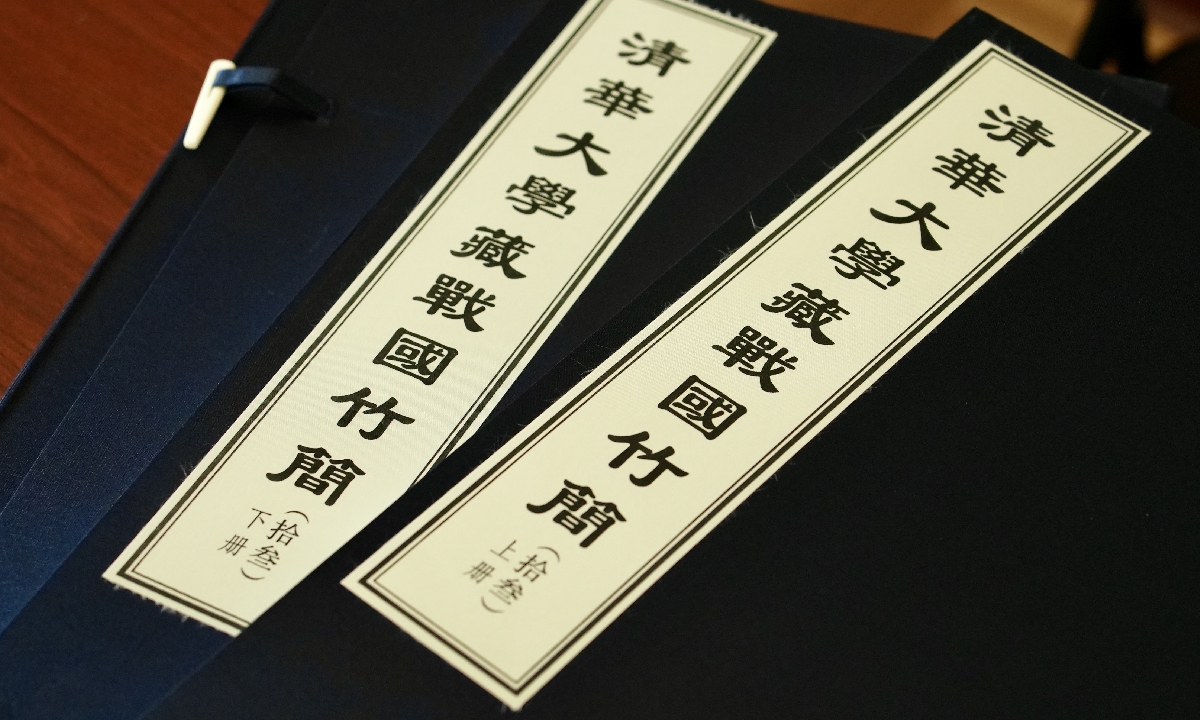
Photo: VCG
Tsinghua University has published the results of new research into five sets of bamboo slips, in which the rites concerning high official's meals and the ritual music system from over 2,000 years ago were carefully recorded.
At a press conference on Sunday, experts explained that those five sets, dating back to the Warring States Period (475BC-221BC) and the Qin Dynasty (221BC-206BC), are "lost classics not found in extant literature."
The five sets of bamboo slips, namely
Rites of a High Official's Meal,
Record of Rites of a High Official's Meal,
Diagram of Five Tones,
Music Style and
Fear Heaven and Use Body, provide new materials for studying the rites, music, and thoughts of the pre-Qin period.
The most eye-catching are the first two ritual books, compiled into one volume, made up of 51 and 14 slips, respectively.
The former records the ceremonial etiquette of the host and guests during a high official's meal, while the latter describes the specific etiquette of the officiant during the meal ceremony, complementing each other.
Huang Dekuan, director of the Center for the Study and Conservation of Excavated Documents at Tsinghua University, noted during the press conference that the text of the slips is similar to
The Book of Etiquette and Ceremonial, a Chinese classic on social behavior and ceremonial ritual practiced during the Spring and Autumn period (770BC-476BC). In addition, "the text reflects some characteristics of a high official's meal rites in the Chu region [today's Hunan and Hubei provinces], which is of great reference value for the study of pre-Qin rites," Huang noted.
The new collated report also includes two music books providing important materials for the study of China's early music theory system as well as the pre-Qin music history.
In the Diagram of Five Tones, a pentagram is drawn in the center with five traditional Chinese musical notes gong, shang, jue, zhi and yu written in the five corners. The top of the pentagram has the note gong, then going clockwise the other four corners have the remaining four notes. Music Style is divided into two parts, the first part records the names of the musical tones, while the content of the second part is still unclear.
Fear Heaven and Use Body is a document of philosophy with a total of 17 slips. With a complete content and no missing slips, this book records the relationship between Heaven and Man, and the exertion of human subjectivity.
The text in the book advocates human subjectivity fully, which demonstrates the pro-active spirit of the people in the Warring States period, and provides new documents for the study of pre-Qin's thought, the university noted.
The batch of 2,500 bamboo slips containing precious historical documents were col-lected by Tsinghua University back in 2008.
As the research now enters the final stage, the whole collated report will be published in a total of 16 volumes, with one volume a year.




